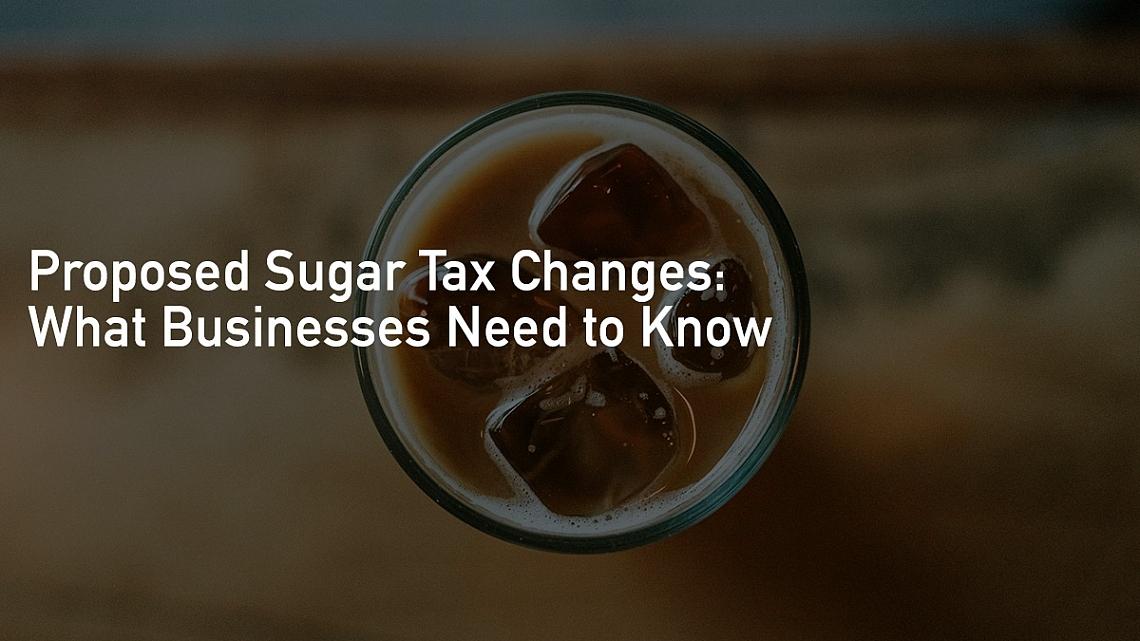
The Government has announced plans to tighten the Soft Drinks Industry Levy (SDIL), more commonly known as the ‘Sugar Tax’. While the original SDIL was relatively successful, sugar consumption is still significantly above recommended levels, and the proposed changes look to tackle this ongoing issue.
This article breaks down how the Soft Drinks Industry Levy works, the proposed changes and the knock-on effect this could have for businesses and consumers.
What is the Soft Drinks Industry Levy?
The SDIL is a charge on pre-packaged drinks containing added sugar, such as those sold in cans and cartons in supermarkets, and it was first introduced in 2018. The tax has proven effective, leading to extensive product reformulation and resulting in a 46% average reduction in sugar content in soft drinks falling within its scope.
Currently, the SDIL applies to pre-packaged drinks containing at least 5g of sugar per 100ml. The tax is charged at:
The Treasury has previously noted that 89% of fizzy drinks sold in the UK do not pay the tax due to widespread reformulation since its introduction.
What changes are being proposed?
Whilst the original tax has proven effective, the government is considering making changes to the SDIL to boost its effectiveness, including:
The Government is not looking to revisit the fundamental tax design or scope. The SDIL will remain a tax on pre-packaged soft drinks with added sugar. Foods, alcoholic drinks, soft drinks with only natural sugars (such as pure fruit juice), and drinks made on-site in cafes and bars, will not be affected by this review.
Which products will be affected?
According to Government analysis, around 203 pre-packed milk-based drinks, accounting for 93% of sales in the category, will face the sugar tax unless their sugar content is reduced. Examples include popular drinks such as Yakult Original, Yazoo Chocolate Milkshake Drink and Starbucks Frappuccino Caramel Iced Coffee. As it stands, these products have sugar levels at least 150% above the proposed new thresholds, meaning they fall within the higher rate band of 24p per litre.
How will these changes impact businesses?
As the SDIL applies to manufacturers of pre-packaged drinks, pubs and shops may find their wholesale purchase prices going up as a result. This will likely lead to higher retail prices as businesses pass on these costs to maintain their profit margins.
For businesses operating on the VAT Flat Rate Scheme, this impact may be particularly significant, as VAT on purchases cannot be recovered under this scheme.
How can businesses navigate these changes?
Manufacturers producing drinks that will fall within the expanded scope of the tax have several options to consider:
Our perspective
Since its introduction in 2018, the SDIL has raised approximately £1.9 billion, with £338 million collected in the 2023/24 financial year (down from £355 million in 2022/23).
While it’s not the most effective revenue generator for the Government given its limited application, the SDIL’s primary purpose is to tackle childhood obesity by incentivising manufacturers to reduce sugar content in their products. The revenue generated supports initiatives promoting healthy eating and physical activity, such as school sports programs and breakfast clubs.
The effectiveness of the tax should be judged on these health outcomes rather than purely on revenue generation.
Have your say
The Government welcomes views on these proposals as part of a formal consultation open until 21st July 2025. Businesses and interested parties can submit opinions directly to HMRC at SDILconsultation@hmrc.gov.uk.
We’d love to hear from you. To book an appointment or to find out more about our services: